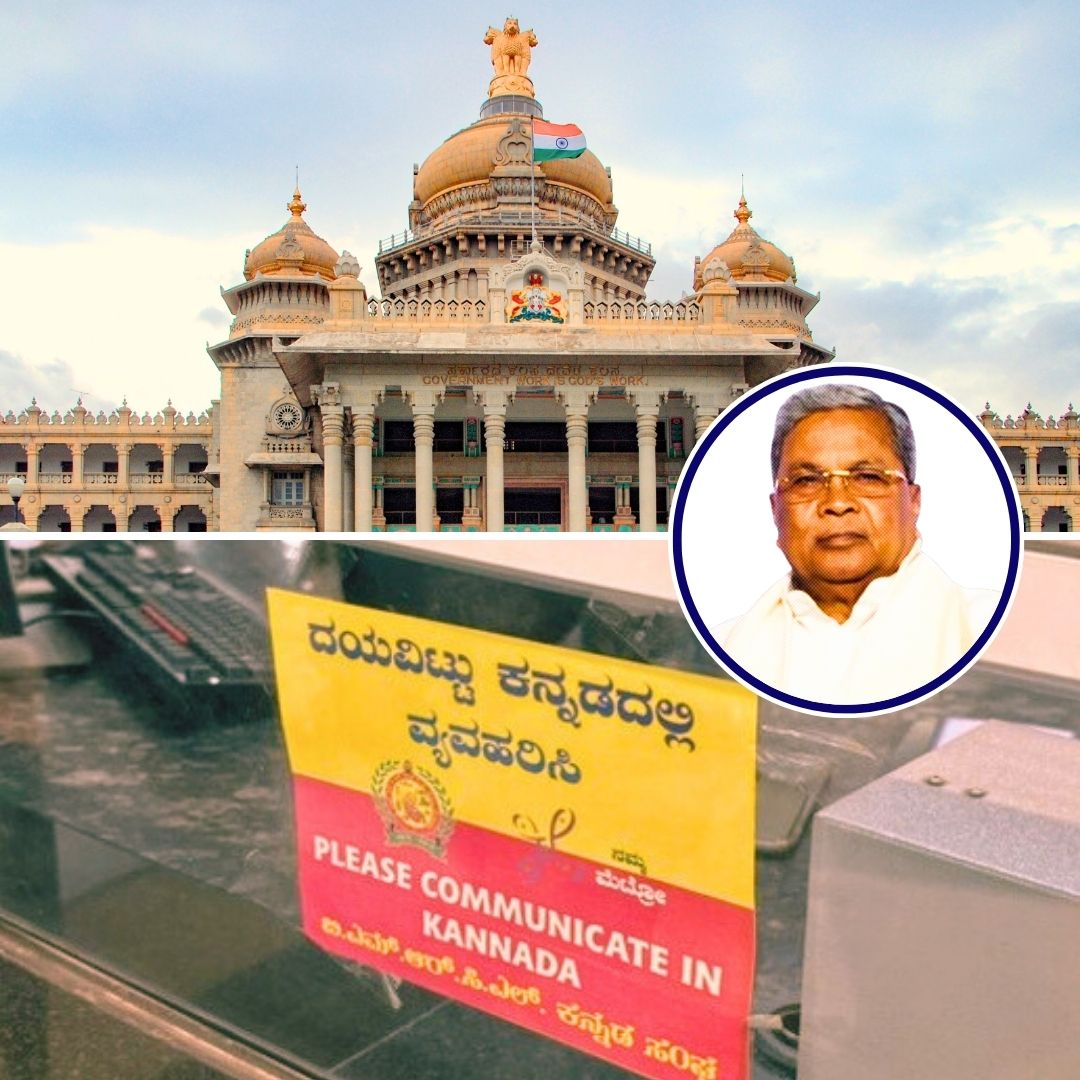The Karnataka government has reissued strict instructions to implement the Karnataka State Language Act, 1963, mandating Kannada as the sole administrative language for all government communications and official activities.
This includes responding to all Kannada applications in Kannada, displaying office name boards in Kannada, and conducting legislative activities, official correspondence, and public notices in the state’s official language.
Officials who fail to comply will face disciplinary action, and non-compliant files will be returned for correction. The move comes amid ongoing non-compliance by some departments and recent controversies over language use in local governance, particularly in regions with dominant non-Kannada languages.
Government Takes Firm Stand on Language Policy
Chief Secretary Dr. Shalini Rajneesh has issued a circular warning of disciplinary action against officials who do not use Kannada in official communication, file notings, and documentation. All government orders—including those on appointments, transfers, and leave approvals, must now be issued in Kannada.
Meeting notices, agendas, brief notes, and records of proceedings must also be prepared in Kannada to ensure the effective implementation of the language policy. The only exceptions are communications with the central government, courts, and other states.
Chief Minister Siddaramaiah has directed that files failing to comply with the language mandate should be returned, and clarifications sought from the concerned officers. The circular applies to all government departments, corporations, boards, local bodies, universities, and aided institutions.
Background and Emerging Controversies
Despite repeated circulars, departments such as Public Works and district administrations have continued to issue documents and meeting agendas in English. The Kannada Development Authority has consistently reported non-compliance, prompting the latest strict enforcement measures.
Meanwhile, in regions like Dakshina Kannada, where Tulu is the dominant spoken language, the enforcement of Kannada as the sole official language has sparked controversy. Local officials and communities are caught between statutory requirements and the risk of alienating residents who primarily speak Tulu.
The district administration has taken a cautious approach, avoiding stringent enforcement to prevent inflaming local sentiments. The issue has also become a political flashpoint, with opposition leaders accusing the government of marginalising regional languages.
The Logical Indian’s Perspective
The Logical Indian recognises the importance of preserving regional languages and fostering inclusive governance.
While the enforcement of Kannada aims to empower local identity and streamline communication, it is crucial that such policies are implemented with sensitivity to linguistic diversity and community sentiments. Encouraging dialogue and understanding between linguistic communities can help prevent conflict and promote harmony.










